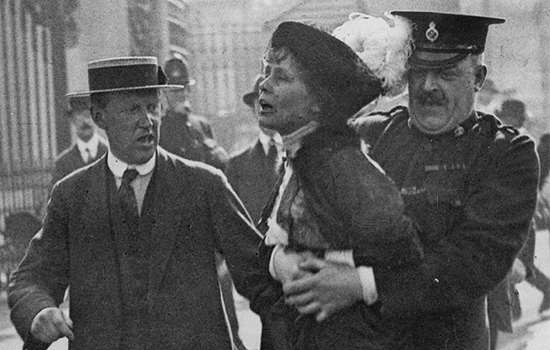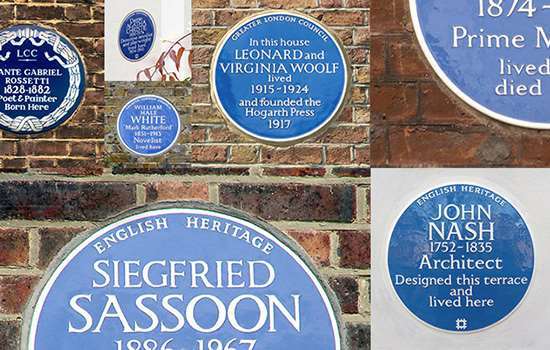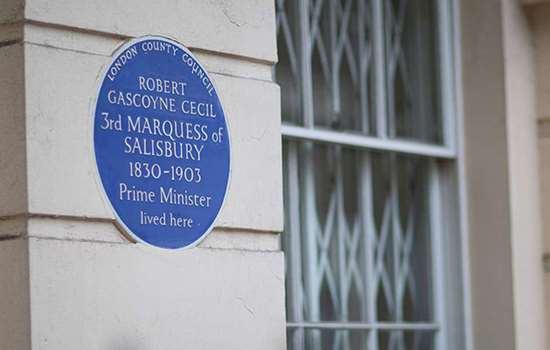HALL, Adelaide (1901–1993)
Plaque erected in 2024 by English Heritage at 1 Collingham Road, South Kensington, SW5 0NT, Royal Borough of Kensington and Chelsea
All images © English Heritage
Profession
Singer
Category
Music and Dance, Radio and Television, Theatre and Film
Inscription
ADELAIDE HALL 1901–1993 Singer lived here
Material
Ceramic
Adelaide Hall was a singer known for her innovative use of her voice as a jazz instrument. Her long career took her from Broadway performances in the 1920s through wartime radio broadcasts for the BBC to one-woman shows in the 1980s.
She is commemorated with a blue plaque at 1 Collingham Road, Kensington, where she lived for more than 27 years.
Early life
Adelaide Louise Hall was born on 20 October 1901 in Brooklyn, New York. Her father was a piano teacher who played several instruments and encouraged her musically. Addie – as she was known to friends throughout her life – sang in school concerts and at the local church.
Though Hall believed that at that time she had ‘a squeaky high voice’, she was spotted and cast in the Broadway musical Shuffle Along (1921). This landmark show ran for over 500 performances and helped to re-establish black showbusiness. She then enjoyed success in Runnin’ Wild (1923) – the show that introduced the Charleston and the ‘flapper’.
In 1924, she married Bertram Errol Hicks, who was Trinidad born (and therefore British). He became her manager.
Touring Europe
Hall made her first tour of mainland Europe in 1926 as a featured vocalist in The Chocolate Kiddies. Soon after, she met Duke Ellington, and performed a vocal on his ‘Creole Love Call’, recorded in October 1927. It was on this track that she made her improvised use of her voice as a jazz instrument that was innovatory.
Hall returned to Broadway with Blackbirds of 1928, starring alongside the dancer Bill ‘Bojangles’ Robinson. Elisabeth Welch was also featured. This was the most successful black revue ever to run on Broadway and took Paris by storm when it transferred to the Moulin Rouge the following year.
Across continents, Hall appeared in nearly a thousand performances of Blackbirds of 1928; some of the songs she sang in it (sometimes accompanying herself on ukulele or guitar), became career staples, such as ‘I Can't Give You Anything but Love, Baby’, ‘Diga Diga Do’ and ‘I Must Have That Man’.
Racism and relocation
Hall made her British stage debut in 1931 at the London Palladium, becoming one of the first black performers to top its bill.
Despite the Depression, Hall prospered. She bought a large house in the upmarket resort of Larchmont, New York, in 1934 but she and her husband suffered racist violence and intimidation from neighbours.
In 1934, Hall headlined New York’s Cotton Club in the first revue following the lifting of prohibition, attracting 600,000 paying customers over an eight month run.
In late 1935, Hall and Hicks travelled to Europe; this was initially a touring engagement, but turned into settled residence in Paris after their Larchmont home was broken into and daubed with racist graffiti. In Paris they opened a nightclub, La Grosse Pomme – ‘The Big Apple’. Adelaide sang there every night.
Britain and the Blitz
In 1938, Hall came to London as one of the stars of Edgar Wallace’s The Sun Never Sets – her main number was ‘My Love is Like a River’, which was brought to life with an onstage river.
Being British by marriage, Hall had been able to acquire a British passport without fuss. She commuted back to Paris every month, then late in 1938 Bert sold the Paris club. Hall and Hicks went on to run the Old Florida Club in Mayfair (bought from Gordon Halsey, who they had met in New York) but this was destroyed in an air raid in 1940. Their second club, The Calypso in Regent Street, opened in 1951.
During the Second World War, Hall worked for the Entertainments National Service Association (ENSA) and was one of the first artists into Germany after the liberation. By her own later account, she performed in air raid shelters, ack-ack gun emplacements and hospitals. She also made over seventy recordings for Decca, as well as many broadcasts for the BBC, sometimes accompanied by Joe Loss and his orchestra.
Collingham Road
In 1952, Hall and Hicks moved into 1 Collingham Road, Kensington. Hicks died in 1963, but Hall would go on to live at this address until 1979, bar an absence of around 18 months when she was performing on Broadway in Jamaica (1957).
During her years at Collingham Road she continued to run the Calypso Club with Hicks, and appeared in shows – for example, in Kiss Me Kate (1951–2) – but the death of her husband in 1963 and the coming of rock and roll hindered her career, though she continued to tour.
Hall made her pantomime debut in Dick Whittington in 1970 and she sang ‘Creole Love Call’ at Duke Ellington’s memorial service at St Martin’s in the Fields in 1974. Hall also devised her one-woman show whilst living at Collingham Road. She would later perform this at the Albert Hall, Queen Elizabeth Hall and – in 1988 – New York’s Carnegie Hall.
Later Years
The UK release of Francis Ford Coppola’s film The Cotton Club (1984) brought Hall to the attention of a new generation. She was featured on The South Bank Show and in the longer television documentary, Sophisticated Lady (1989).
She reprised her one-woman show aged 90, when a New York Times reviewer noted the ‘unquenchable good humor and ebullience’ with which she delivered her ‘rare mixture of American jazz and English theatrical vernaculars.’
Adelaide Hall died at the Charing Cross Hospital on 7 November 1993. She is buried at the Evergreens Cemetery, Brooklyn, alongside her mother.


